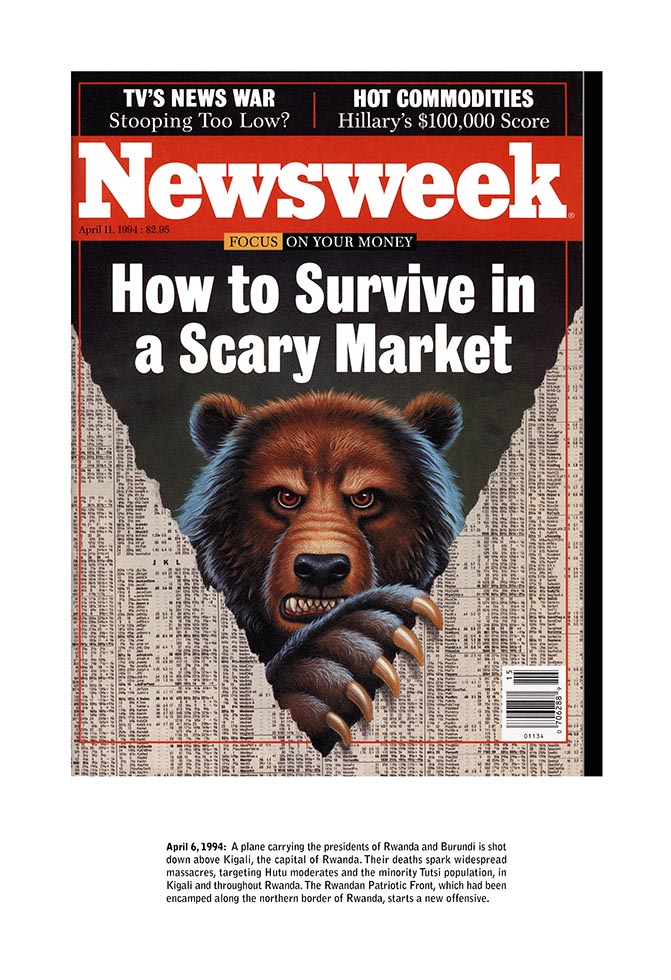
Untitled (detail), from the series Untitled (Newsweek), 1995, Alfredo Jaar, inkjet print
Courtesy Alfredo Jaar and Galerie Lelong, New York. © Alfredo Jaar
Transcript
Female Narrator Artist Alfredo Jaar had been following the events in Rwanda for quite a while.
[somber piano music]
Alfredo Jaar When the genocide started I started accumulating as much information as I could find from the media. These are pre-internet times. And, I was watching with horror how the international community was criminally indifferent to what was happening there.
Female Narrator Jaar is blunt when he talks about the media response to the genocide.
Alfredo Jaar I would qualify it as barbaric. It was a barbaric indifference. People were dying in the thousands [music ends] and in main newspapers the stories were buried in page 5 or 7.
Female Narrator Jaar believes he knows why.
Alfredo Jaar Because there is no oil in Rwanda, because Rwanda is poor, because Rwandans are black, and because Rwanda's in Africa.
Female Narrator When he could take it no more, Jaar went to Rwanda.
Alfredo Jaar I felt that the Rwandan people deserved better than what the world media had done with the genocide and so I went to witness it and I tried to convey the suffering and the pain and the tragedy that the genocide meant for the Rwandan people. And I wanted to convey also that some people in the western world cared about their state.
Female Narrator Jaar worked on the Rwanda project for 6 years. Newsweek is one of the first works from the project. It's a sequence of 17 Newsweek covers, from April 1994, when the genocide started, until August 1st, when the magazine finally put Rwanda on its cover.
[somber piano music]
Alfredo Jaar Basically, I wanted to show the criminal indifference of the magazine to what was happening in Rwanda at the time. A million people were killed in less than 100 days, and Newsweek magazine took 17 weeks to feature Rwanda on its cover.
A work like this tries to inform people and to move them. A work like this tries to touch people and illuminate them. So when similar events might happen in the future, they might read them differently.
[music ends]